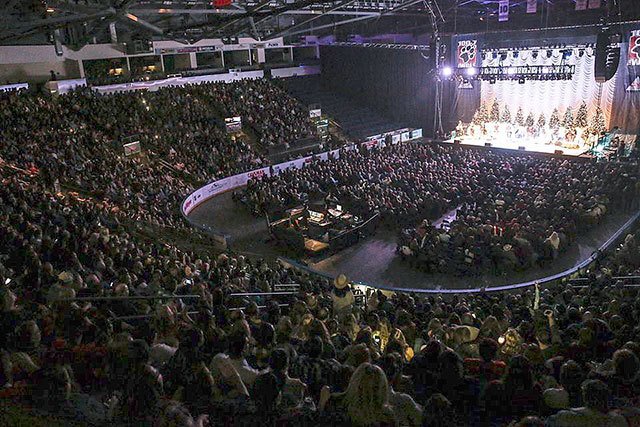The operating losses at the city-owned ShoWare Center last year were the lowest since the arena opened in 2009.
“We had a great year – best year ever,” said Arletta Voter, ShoWare finance director, in a report Jan. 26 to Kent’s Public Facilities District Board that helps oversee the $84.5 million arena. “The adjusted gross income was $613,000 above budget.”
The arena lost $155,268 in 2016, according to the ShoWare Center income statement. The arena had expenses of $2.91 million and income of $2.75 million.
Tim Higgins, ShoWare general manager and his staff projected losses at $470,140 in the 2016 budget. He attributed the lower losses to 10 extra Western Hockey League playoff games by the Seattle Thunderbirds junior team (the arena’s anchor tenant) and several sold-out concerts.
“Playoffs, Dolly Parton, Michael W. Smith-Amy Grant – shows that weren’t there when we budgeted,” Higgins said. “It’s just more shows than when we budgeted. It’s the attendance, the number of people in the building. It’s food and beverage sales. It’s all based on attendance. For every ticket we sell, there’s a percentage back to us.”
A sellout crowd of 6,000 packed the arena for the Parton concert in September.
“Some of the events like Dolly where a lot of folks are drinking and eating that definitely helps,” said Ryan Hart, ShoWare marketing director. “Those type of shows definitely help the bottom line.”
SMG, which operates the ShoWare Center, doesn’t budget potential hockey playoff games that often draw large crowds and fans who spend money on food and beverage. The T-Birds must finish among the top eight teams in their conference to advance to the playoffs.
Food and beverage sales brought in $824,001 last year, nearly $120,000 more than budget. Rental income from the extra events brought in an extra $183,738.
An estimated 450,000 people came through the ShoWare Center doors last year for 230 events, including several free community events. More than 330,000 tickets were sold.
The city took in an estimated $370,000 from its admissions tax (5 percent on each ticket sold). The admissions tax money goes to the city’s general fund rather than the arena’s income statement. The city then moves that admissions tax money to its arena operating budget to help cover operating losses and capital improvement projects at the ShoWare Center.
The City Council agreed in 2014 to pay $3 million per year toward the ShoWare’s operating debt with extra reserve money the city had in its general fund because of higher sales tax and other revenues. The council also puts $300,000 per year in a fund to help pay for capital improvements at the arena.
City officials certainly appreciate the lower revenue losses.
“This was our best year ever,” said Ben Wolters, city economic and community development director, who helps oversee the arena. “Looking at both economic trends and trends in the industry, I think Tim (Higgins) and I have been pleasantly pleased that we seemed to have really started to get some consistent repeated traction in the marketplace for the building.”
Wolters expects similar financial numbers in 2017.
“I’m very hopeful for another good year,” Wolters said. “The T-Birds continue to be an attraction. And I’m seeing real potential opportunity in the growth of the economy and population in South King County. Just in Kent alone in the nine years the building’s been open we’ve grown in population by some 20,000 people, roughly between 1,500 and 2,000 per year. As the population grows, we present a bigger and more attractive market to shows and other events.”
ShoWare Center operating losses
2016: $155,268
2015: $254,530
2014: $752,324
2013: $370,874
2012: $707,541
2011: $487,855
2010: $427,119
2009: $480,851
Total: $3.5 million
Talk to us
Please share your story tips by emailing editor@kentreporter.com.
To share your opinion for publication, submit a letter through our website https://www.kentreporter.com/submit-letter/. Include your name, address and daytime phone number. (We’ll only publish your name and hometown.) Please keep letters to 300 words or less.

